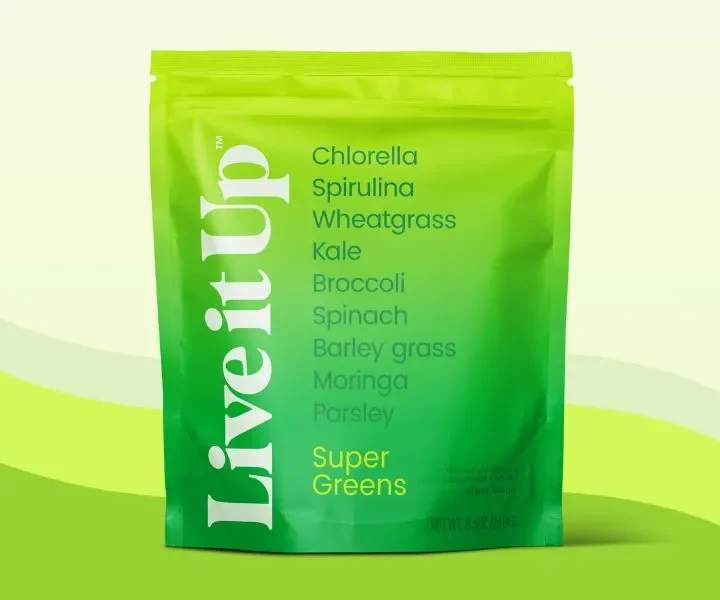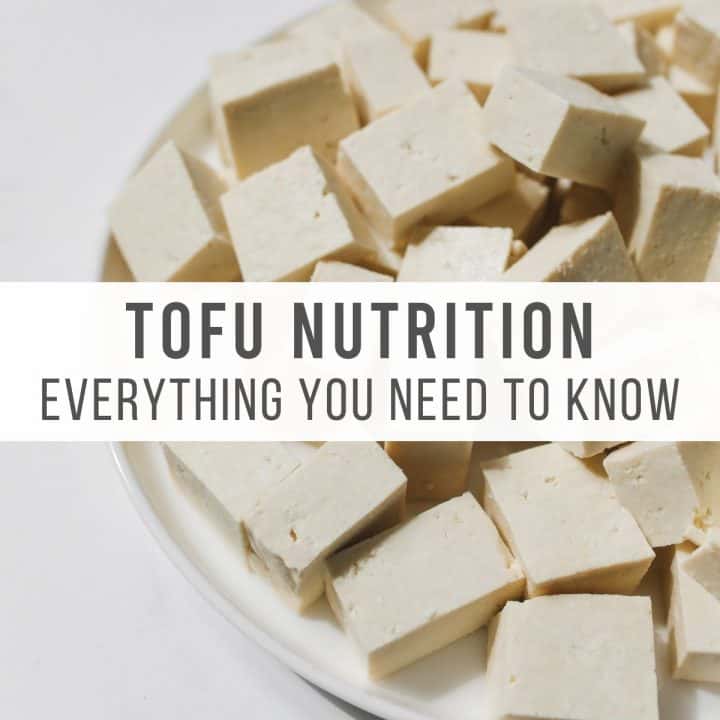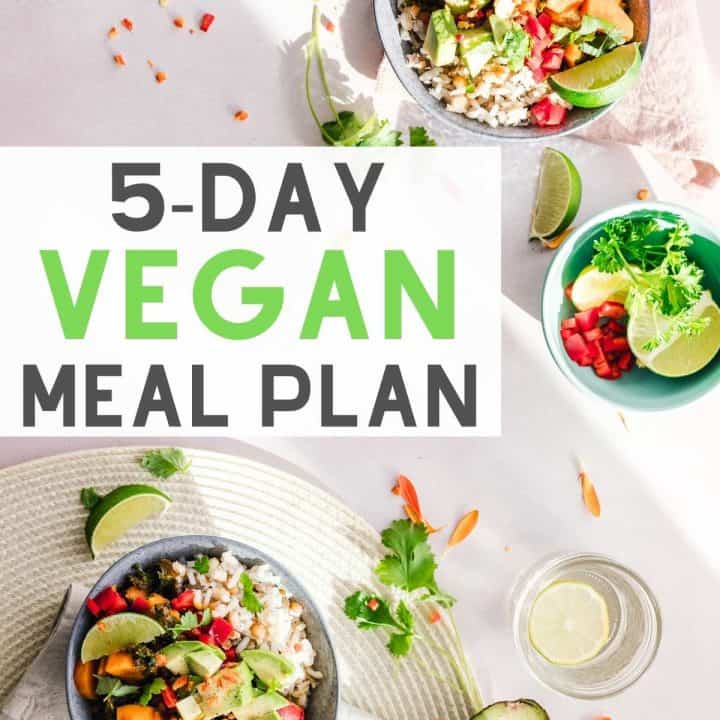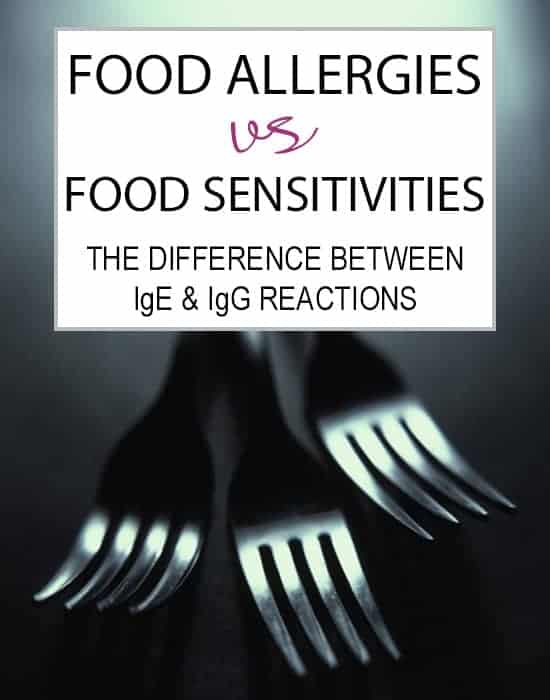
There are a number of reasons you might have gone vegan or adopted a plant based diet - and they’re all amazing.
Now that you’ve made the decision, maybe you want to know more about plant based nutrition (and when I say diet I mean way of eating, not the usual I’m going to do this to “diet” to lose weight sort of thing).
I wanted to put a source together to answer some questions that I often get from people wondering about plant based nutrition:
Jump to:

Is it healthy to go plant based?
The short answer is yes, it can be VERY healthy - you just need to make sure you’re doing it in the right way.
And let’s be honest, is the SAD (Standard American Diet) really all that healthy to begin with? According to the CDC, 6 in 10 Americans are living with at least one chronic disease such as heart disease, stroke, cancer, or diabetes.
Most chronic diseases can be prevented by eating well and other lifestyle factors like exercising and limiting tobacco and alcohol use, however, diet is the single most significant risk factor for disability and premature death. (1)
People get concerned with how to consume enough protein on a plant-based diet but they don’t realize protein is never usually the problem. It’s rare to see protein deficiency when eating a well-rounded plant-based diet. What I do see most often as a nutritionist is a lack of fruits and vegetables which should really be the bulk of everyone’s plate no matter what time of diet you partake in.
Research has indicated that plant-based diets are associated with reducing the risk of (2, 3, 4, 5, 6):
- Diabetes
- Hypertension
- Obesity
- Cardiovascular disease

What do I eat to stay healthy on a plant-based diet?
I get a lot of questions on how to stay healthy and vegan nutrition in general. And I get it! As we get older our health becomes much more important than ever before so we’re more concerned with nutrition.
In general, staying healthy on a vegan diet consists of sticking to mostly whole foods and reducing processed food and sugar consumption.
If you want to make sure you’re eating a well-rounded vegan diet, make sure your meals are as nutrient-packed as possible.
Here are some tips for healthy plant based meals:
- Fill half your plate with colorful non-starchy veggies.
- Fill a quarter of your plate with a healthy carbohydrate such as a whole grain (brown rice, quinoa, etc.), a starchy vegetable (sweet potatoes, winter squash, etc.), or even some pasta every once in a while.
- Fill a quarter of your plate with a plant-based protein such as beans (so many choices!), seitan, tofu, tempeh, or soy curls.
- Add a healthy fat in the form of avocado, coconut, nuts, seeds, a creamy nut-based or coconut-based sauce, or a dressing with some extra virgin olive oil.
By insuring your plate (or bowl) contains these foods, you’ll be getting a well-balanced meal containing your macronutrients as well as vitamins and minerals to support your overall health.
While focusing on whole foods is ideal, sometimes our busy lives make it challenging to get all the nutrients we need from diet alone. That's where supplements like the best greens powders can come in handy for plant-based eaters. These powders often contain a blend of nutrient-dense vegetables, fruits, and sometimes probiotics or enzymes. They can help fill nutritional gaps, especially on days when you're struggling to meet your veggie intake goals. However, it's important to remember that greens powders shouldn't replace whole foods entirely. Instead, think of them as a convenient boost to complement your well-rounded plant-based diet.
Now let me say that this is just a basic idea of what your meal should look like. If you have specific issues or want more information on vegan nutrition, speak with a qualified nutrition expert like me, a Certified Nutrition Specialist and plant-based Functional Nutritionist.
If you need some recipe ideas, check them out!
Which nutrients might be lacking for optimal plant based nutrition?
It’s beneficial to understand the nutrients that can be lacking in a vegan diet so you can make sure to keep an eye on those.
The most common nutrients that vegans lack are:
- Vitamin B12
- Vitamin D
- Calcium
- Iron
- Zinc
I will also say that many people in the world today are lacking in a number of these nutrients no matter what type of diet they follow.
I will go into these items in separate blog posts but for now, I wanted to just mention a little about each one.
VITAMIN B12 (COBALAMIN)
There are no naturally occurring plant-based foods that contain B12, however, some foods (such as nutritional yeast) are fortified with them. It is essential for vegans to get enough B12 so I always recommend that vegans supplement with B12 to be sure they are getting adequate amounts. (See supplement info below for more info).
While you can get a blood test for B12, that only tests the amount of B12 in the blood at that time. A better marker for deficiency methylmalonic acid (an organic acid that can be tested in urine). If MMA is high, it indicates a true B12 deficiency.
VITAMIN D
There are not many naturally occurring foods with Vitamin D except for mushrooms if they have been treated with UV rays. Some fortified foods like some non-dairy yogurt and milk, orange juice, cereals, and tofu contain vitamin D – just be sure to check the packaging.
Much of our population is low in vitamin D, especially in the winter months. Have your doctor check your bloodwork to test 25 OH D levels.
CALCIUM Plant-based food sources of Calcium are leafy greens (kale, turnip greens, mustard greens) fortified soy and other non-dairy milk, fortified tofu, white beans, bok choy, broccoli, and watercress.
There is no real test for calcium deficiency because your body tightly regulates calcium levels. If you are low in calcium, your body will take it from your bones so you want to make sure you’re getting enough calcium in your diet to prevent osteoporosis.
IRON
There are many plant-based sources of or iron, such as lentils, carrots, soybeans, broccoli, oatmeal, quinoa, fortified cereals. For better iron absorption, eat foods high in iron with vitamin C-rich foods.
You can get a full blood iron panel done from your doctor which includes iron and Total Iron Binding Capacity (TIBC), ferritin, and transferrin blood tests. It’s a good idea to get these checked every once in a while to make sure levels are adequate and to prevent iron deficiency anemia.
ZINC
Lentils, green peas, white beans, wheat bran, corn, oatmeal are all plant-based ways to include zinc in your diet.
While a doctor can order a blood plasma test for zinc, an easy way to test for a zinc deficiency is an oral zinc taste test. Many functional practitioners will have a liquid zinc test at their office (or can order it for you). For this test, liquid zinc sulfate with water is taken orally. If a person tastes only plain water, a zinc deficiency is often indicated. If a strong and unpleasant taste is experienced, no zinc deficiency is usually indicated.

Do I need to take supplements on a plant based diet?
I get the question of “do vegans have to take supplements?” often.
The easy answer is that except for B12, supplements for a vegan aren’t always required...but they could be helpful.
If you’re eating a healthy diet full of veggies, whole grains, and beans, you might not need to take any other supplements besides B12 for healthy plant based nutrition. But if your diet is not always on par, a supplement could help where the diet is lacking. Again this goes for EVERYONE, not just vegans.
While I promote a “food first” mentality when it comes to getting my nutrients. I myself take a few supplements here and there to make sure I’m getting adequate amounts. This can change from season to season or when certain things come up in my blood work or health in general.
Most people (plant based or not) could do well with taking a high-quality multivitamin that is age group.
Supplements that may prevent any nutrition deficiency*:
- B12 - Methylcobalamin and cynocobolamin are two absorbable types of B12. I myself take 1000mcg/day of sublingual methylcobalamin but be sure to check with your personal nutritionist or healthcare provider for the correct kind for you especially if you have any issues with methylation or feel shaky after taking a methylated form of any vitamin.
- If Vitamin D levels are low, which many times they are for vegans especially in the winter, you can take a supplement to get them back up to normal. Once normalized, supplements can be re-evaluated. For dosing, speak with a qualified nutrition professional. If you do supplement with vitamin D and are vegan, be sure to note that most vitamin D3 is animal-based while vitamin D2 is plant-based.
- Calcium can also be supplemented to ensure you are getting enough to maintain your levels. I like taking a more absorbable form of calcium such as calcium glycinate or calcium malate is usually used for constipation issues.
- Zinc supplementation is sometimes necessary for vegans. I myself supplement, especially during cold and flu season.
*Speak with a highly qualified nutrition specialist or doctor that has special training in nutrition before starting any supplementation.
I will also add that I only purchase practitioner-grade supplements after hearing about how many supplements at drug/supplement stores and Amazon have been shown to:
- Have been expired
- Have been stored at incorrect temperatures causing the product to be useless (or even harmful)
- Have their packaging adulterated so that you think you’re getting a name brand and it actually is a fake product that does not help whatsoever

Mary Ellen Valverde MS, CNS, LDN is a Licensed Nutritionist and Certified Nutrition Specialist who empowers vegans to feel clear and confident about what is uniquely nourishing to them. Mary Ellen's recipes and nutrition information have been featured on Yahoo News, Parade, VegNews, LIVESTRONG, Dr. Axe, Greatist, LIVEKINDLY, Brit+Co, Well+Good, and more.
Mary Ellen Valverde MS, CNS, LDN is a Licensed Nutritionist and Certified Nutrition Specialist who empowers vegans to feel clear and confident about what is uniquely nourishing to them.Mary Ellen's recipes and nutrition information have been featured on Yahoo News, Parade, VegNews, LIVESTRONG, Dr. Axe, Greatist, LIVEKINDLY, Brit+Co, Well+Good, and more.




Comments
No Comments